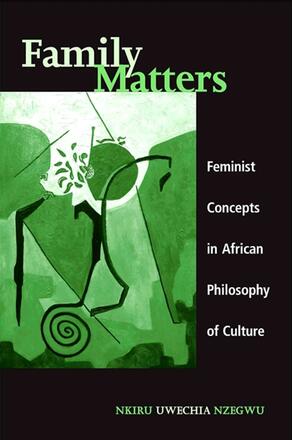
Family Matters
Feminist Concepts in African Philosophy of Culture
Alternative formats available from:
Charts new trends in gender studies through a compelling analysis of Igbo society.
Description
Prior to European colonialism, Igboland, a region in Nigeria, was a nonpatriarchal, nongendered society governed by separate but interdependent political systems for men and women. In the last one hundred fifty years, the Igbo family has undergone vast structural changes in response to a barrage of cultural forces. Critically rereading social practices and oral and written histories of Igbo women and the society, Nkiru Uwechia Nzegwu demonstrates how colonial laws, edicts, and judicial institutions facilitated the creation of gender inequality in Igbo society. Nzegwu exposes the unlikely convergence of Western feminist and African male judges' assumptions about "traditional" African values where women are subordinate and oppressed. Instead she offers a conception of equality based on historical Igbo family structures and practices that challenges the epistemological and ontological bases of Western feminist inquiry.
Nkiru Uwechia Nzegwu is Professor of Africana Studies and Philosophy at Binghamton University, State University of New York.